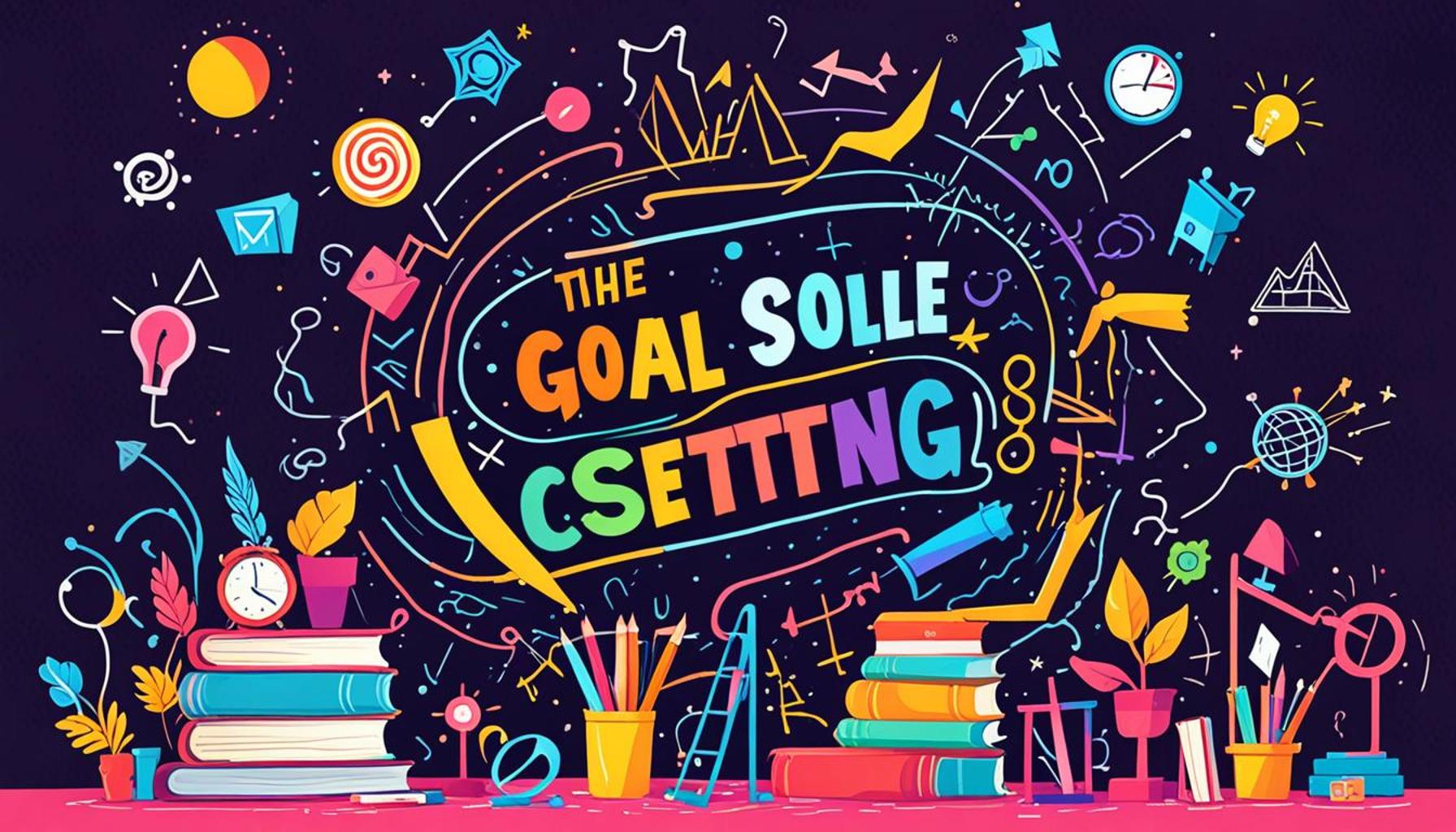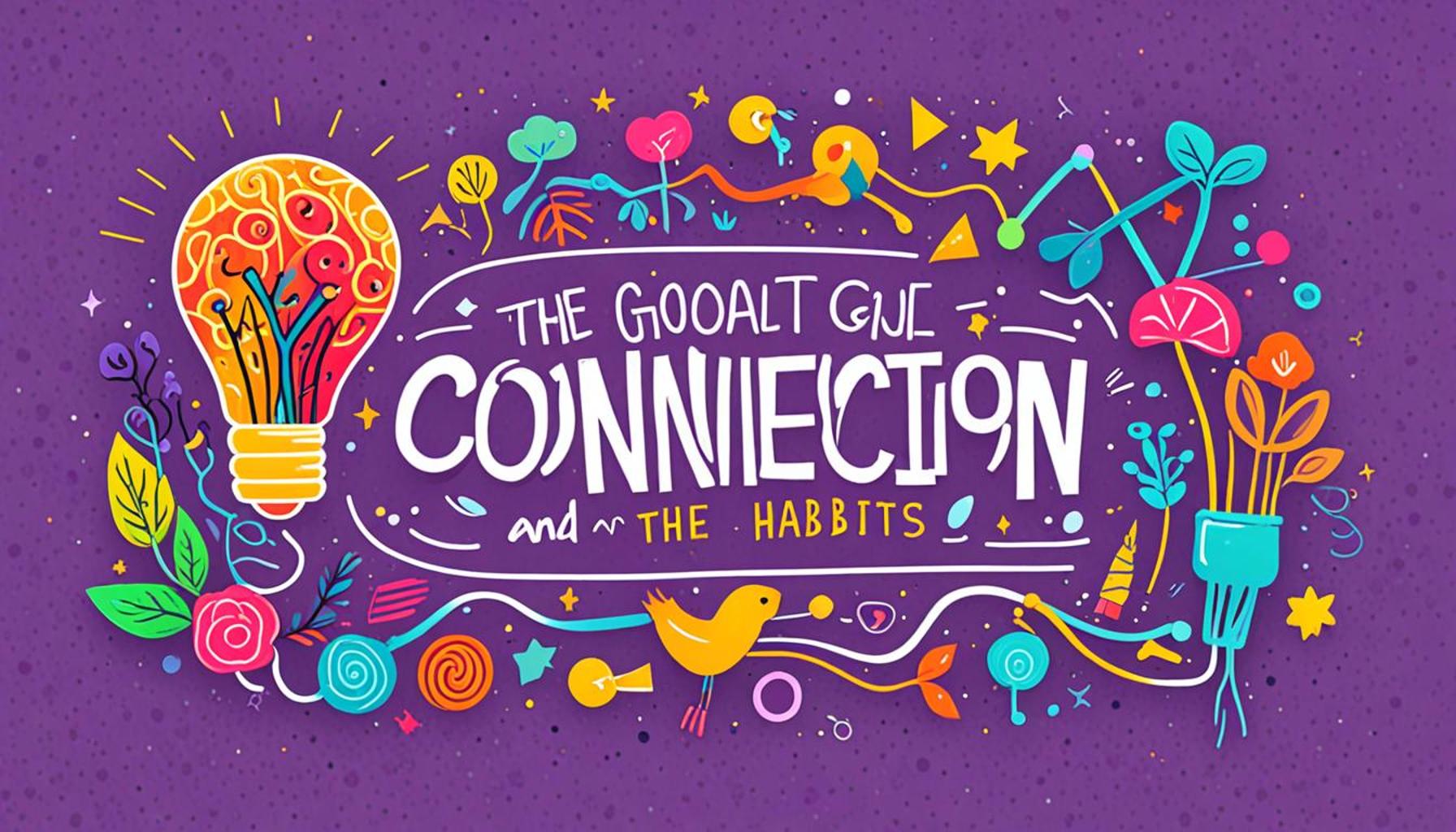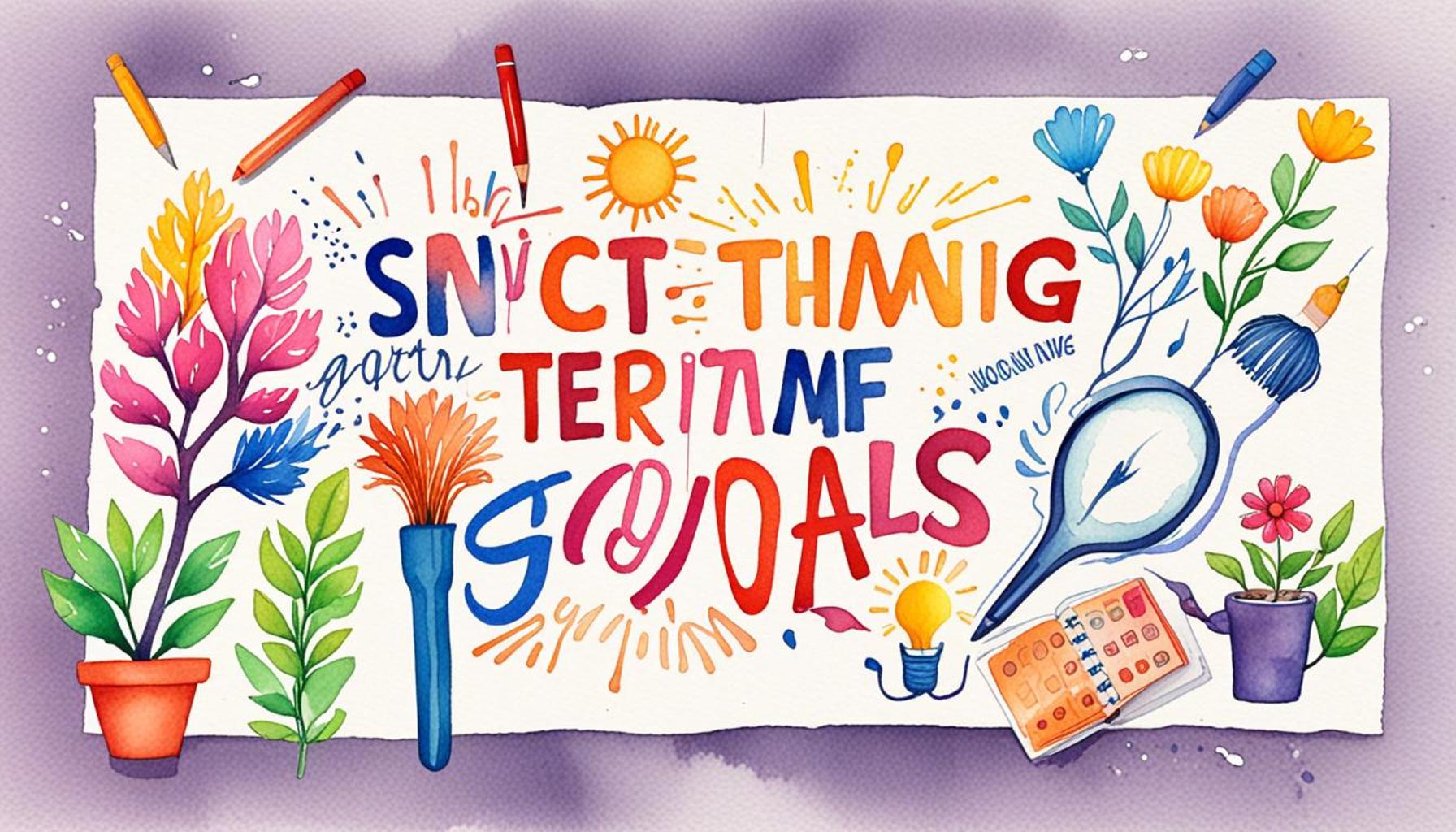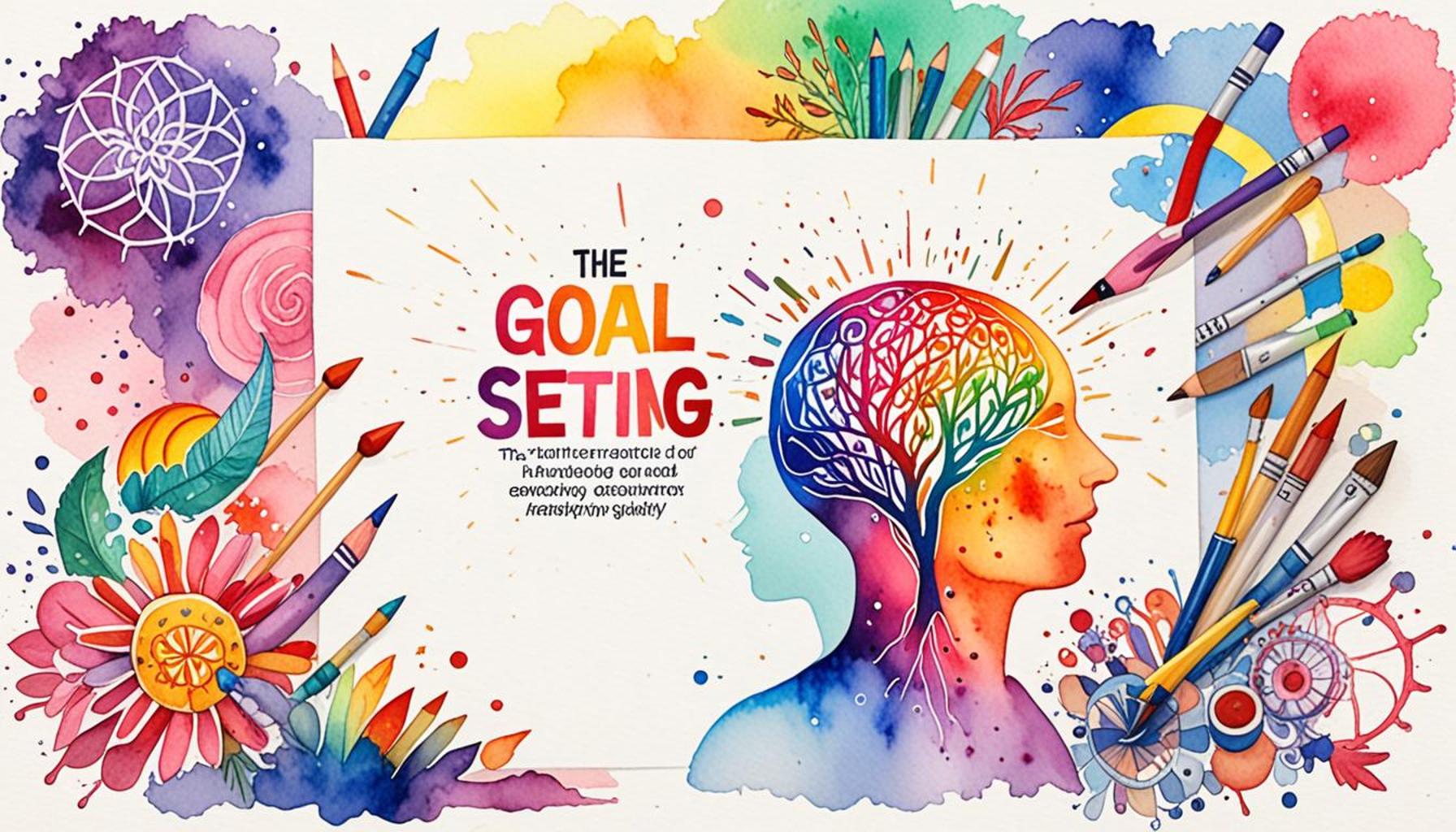The role of goal setting in building continuous learning habits in a changing environment

The Importance of Continuous Learning
In today’s rapidly changing world, particularly in Nigeria, the imperative to *adapt and thrive* through continuous learning has never been more pronounced. With the rise of technology and the evolving economic landscape, individuals must embrace *learning as a continuous journey* and not merely an academic exercise. Establishing strong continuous learning habits is essential for personal and professional growth.
At the core of fostering a culture of learning is goal setting. This fundamental practice offers individuals the structure and motivation needed to focus on their learning pathways. By clearly defining objectives, learners not only establish a roadmap for their education but also create a sense of accountability that drives them toward success.
Clarity in Direction
One of the most significant advantages of setting specific goals is the clarity in direction it provides. For instance, a recent university graduate in Nigeria looking to excel in the technology sector might set a goal to learn coding languages such as Python or Java within six months. This defined goal allows the individual to allocate time and resources effectively, directing their efforts towards acquiring the necessary skills.
Measured Progress
Moreover, establishing clear goals allows individuals to track their journey, an aspect best described as measured progress. Consider a professional aiming to climb the corporate ladder; by setting milestones such as obtaining relevant certifications or completing specific projects, they can monitor their development over time. This not only highlights their achievements but also pinpoints areas that require further attention, ensuring a balanced approach to learning.
Increased Motivation
Moreover, achieving even small milestones can significantly boost an individual’s drive and passion for learning. Each accomplishment fuels the enthusiasm to tackle larger challenges. The experience of many Nigerian entrepreneurs, who set incremental goals while building their businesses, exemplifies this phenomenon. As they celebrate each success, they forge ahead with renewed energy, brimming with ideas and innovations.
In the Nigerian context, particularly as globalization transforms job markets, *cultivating effective learning habits* is not just beneficial; it is essential. The ability to pivot and adapt becomes crucial in a world where new industries emerge and old ones fade away. By embracing goal setting as a central pillar of their learning journey, individuals can cultivate resilience and foster a spirit of innovation, making them valuable assets in the workforce.
Overall, the interplay of goal setting and continuous learning creates a dynamic environment where personal growth flourishes. Those willing to invest in their education through well-defined objectives are likely to thrive in an increasingly complex world, driving their success and contributing positively to society. By understanding the relevance of this relationship, we can encourage more individuals in Nigeria to pursue learning as a lifelong endeavor, embracing the opportunities that come with it.
YOU MAY ALSO LIKE: Read read another article
Building a Foundation for Lifelong Learning
As individuals strive to navigate the complexities of a rapidly evolving world, the ability to set and achieve specific goals becomes indispensable in fostering continuous learning habits. In Nigeria, where innovation and technology significantly impact career prospects, the synergy between goal setting and learning equips individuals with the tools required to adapt and excel. Understanding how to set effective learning goals is crucial for anyone seeking to make meaningful progress in their personal and professional lives.
SMART Goals: A Structured Approach
One of the most effective frameworks for setting learning goals is the SMART criteria, which encourages individuals to create goals that are Specific, Measurable, Achievable, Relevant, and Time-bound. For example, a young Nigerian entrepreneur might set a SMART goal to enroll in a digital marketing course within the next month, aiming to complete it in three months. This structured approach provides clarity and focus, promoting a more intentional learning process.
- Specific: Define clear and concise learning objectives.
- Measurable: Establish criteria for tracking progress.
- Achievable: Set realistic goals that can be accomplished.
- Relevant: Align goals with personal and professional aspirations.
- Time-bound: Set a deadline for completing each goal.
The Role of Accountability and Support Systems
In the pursuit of continuous learning, goal setting not only directs attention but also encourages accountability. By articulating their objectives to peers, mentors, or even social media networks, individuals create a sense of external responsibility that can significantly enhance commitment to their learning journey. In Nigeria, community engagement can be a powerful motivator. Groups like professional associations or local learning hubs provide an environment where members can share experiences, seek advice, and celebrate achievements together.
Furthermore, joining study groups or attending workshops helps reinforce learning and commitment. When individuals witness others working towards similar goals, it serves as a potent reminder of the significance of maintaining focus on their objectives. As the saying goes, “As iron sharpens iron, so one person sharpens another.” This principle underscores the necessity for a robust support system that bolsters an individual’s resolve to commit to learning.
Adapting Goals to a Fluid Environment
The landscape of opportunities is continually shifting due to globalization, technological advancements, and changes in economic demand. As such, it is imperative for individuals to regularly revisit and adjust their learning goals. Those in Nigeria working in sectors such as information technology or renewable energy must remain attuned to emerging trends that can inform their skill sets. By maintaining flexibility in their learning objectives, individuals can pivot swiftly in response to the environment around them, ensuring they are always prepared for what lies ahead.
In conclusion, goal setting serves as a critical strategy in building continuous learning habits that are vital in a changing environment. By employing structured approaches, leveraging support systems, and adapting to new circumstances, individuals fortify their ability to learn and grow, ultimately positioning themselves for success in an uncertain future.
| Advantage | Description |
|---|---|
| Increased Focus | Goal setting enhances clarity and focus, directing attention towards specific learning targets in a dynamic landscape. |
| Motivational Boost | Defining clear objectives fuels motivation, encouraging individuals to pursue continuous improvement in their skillset. |
| Adaptability | Structured goals promote a adaptive mindset, essential for thriving amidst constant changes and disruptions. |
| Accountability | Setting goals encourages a sense of responsibility, making learners accountable for their progress and fostering persistence. |
Engaging in goal setting is more than a mere academic exercise; it is a vital component in establishing a culture of continuous learning. Research indicates that well-defined goals can significantly influence an individual’s ability to adapt to new challenges. Moreover, it cultivates a proactive attitude, preparing learners to exploit opportunities that arise in unpredictable environments. By breaking down larger objectives into manageable tasks, individuals become equipped to tackle their learning journey systematically.In the face of rapid change, the ability to reassess and adjust goals is paramount. This flexibility nurtures resilience, enabling learners to pivot when necessary and remain committed to lifelong education. The relationship between goals and learning habits cannot be understated. It’s an empowering cycle: as goals are met, confidence increases, fueling the pursuit of even greater knowledge. Fostering these habits not only benefits individual learners but also contributes to a collective culture primed for innovation and growth.
CHECK OUT: Click here to explore more
The Impact of Self-Reflection on Goal Achievement
As individuals engage in the process of setting learning goals, the practice of self-reflection emerges as a crucial component in honing their capacity to develop continuous learning habits. Self-reflection involves taking the time to assess one’s own experiences, strengths, and weaknesses, which can lead to a more profound understanding of what needs to be achieved. In Nigeria, where diverse socio-economic factors influence educational opportunities, self-reflection can serve as an equalizer, enabling individuals to pivot towards identified areas of growth regardless of their starting point.
Integrating Self-Assessment Tools
To facilitate meaningful self-reflection, individuals can employ various self-assessment tools that allow for better introspection and monitoring of progress. For example, using journals or apps designed for goal tracking can encourage learners to document their achievements, setbacks, and emotional responses to their learning journey. This documentation not only provides insights into their learning styles but also highlights patterns that can inform future goal setting.
Moreover, Nigeria’s educational sector has seen an increase in workshops and training programs that offer skills assessment and self-evaluation techniques. These initiatives empower learners to identify their unique capabilities and challenges, which is essential for setting realistic and relevant goals. By aligning their self-assessment with their aspirations, individuals can maintain motivation and direction amidst the chaos of a changing environment.
The Role of Technology in Bridging Gaps
The digitization of learning resources also plays a pivotal role in goal achievement. In Nigeria, where access to quality educational materials may be inconsistent, technology provides alternative avenues for continuous learning. Online platforms such as Coursera, Udemy, and local initiatives like Andela can serve as vital resources for fulfilling specific learning goals. By incorporating technology into goal setting, individuals can create a diverse learning environment that meets their personal and professional requirements.
- Access to Resources: Individuals can access a vast array of courses from anywhere, allowing flexibility in learning.
- Customization: Online learning enables tailored experiences that align with specific skill development goals.
- Networking Opportunities: Engaging with diverse online communities can foster collaboration and communal support.
Embracing a Growth Mindset
A growth mindset—the belief that abilities and intelligence can be developed—plays an instrumental role in supporting the effectiveness of goal setting in continuous learning. In the face of challenges and setbacks, individuals with a growth mindset view these hurdles as opportunities for growth rather than insurmountable obstacles. This mentality is particularly relevant in Nigeria, where the pursuit of ambitious learning goals often encounters various societal barriers.
To cultivate a growth mindset, individuals can adopt practices such as celebrating small wins, embracing feedback, and maintaining resilience in the face of adversity. Societies that encourage a growth-oriented culture elevate communal learning, leaving room for collaboration and improvement. Educational institutions, workplaces, and local communities can contribute by promoting phrases like “failure leads to growth” among learners and professionals, thus solidifying a positive cycle of goal pursuit and skill development.
In summary, the intersection of self-reflection, technology, and a growth mindset enriches the role of goal setting in establishing continuous learning habits. Individuals who embrace these components can adapt more effectively to a changing environment, ultimately enhancing their personal and professional trajectories.
ADDITIONAL INSIGHTS: Expand your understanding here
Conclusion
In an era defined by rapid change, the act of goal setting emerges as a cornerstone for fostering continuous learning habits. Through the integration of self-reflection, advanced technology, and an embracing of a growth mindset, individuals can navigate the complexities of their personal and professional landscapes with agility and purpose. The Nigerian landscape, marked by both its opportunities and challenges, highlights the need for individuals to cultivate a proactive approach to learning.
The strategic use of self-assessment tools not only aids in clarifying goals but also enhances one’s ability to adapt and respond to evolving circumstances. Furthermore, harnessing technology democratizes access to knowledge, allowing individuals from diverse backgrounds to pursue tailored learning experiences. Engaging with online platforms and communities unlocks a wealth of resources, making continuous learning an accessible endeavor for all.
Ultimately, fostering a growth mindset is vital for establishing resilience in the face of setbacks. By viewing challenges as gateways to development, individuals can maintain momentum and motivation throughout their learning journey. As stakeholders in education, employment, and community continue to champion these practices, the collective move toward a culture of continuous learning can reshape the narrative of success in Nigeria.
In conclusion, the synergistic relationship between goal setting and continuous learning habits is not merely a personal asset; it becomes a vital strategy for thriving within a rapidly changing environment. By committing to this approach, individuals can not only enhance their own potential but also contribute to a more adaptable and empowered society.


